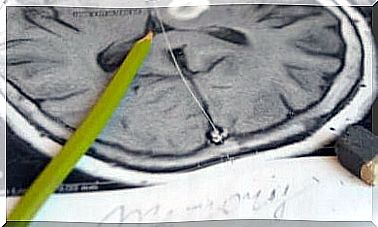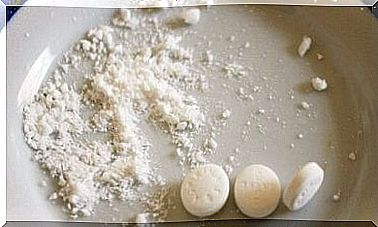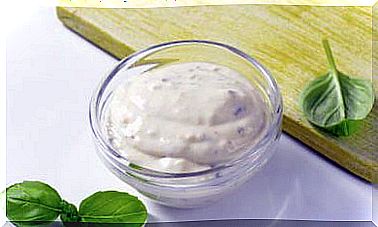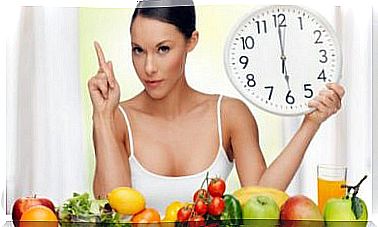Get More Potassium From These Foods
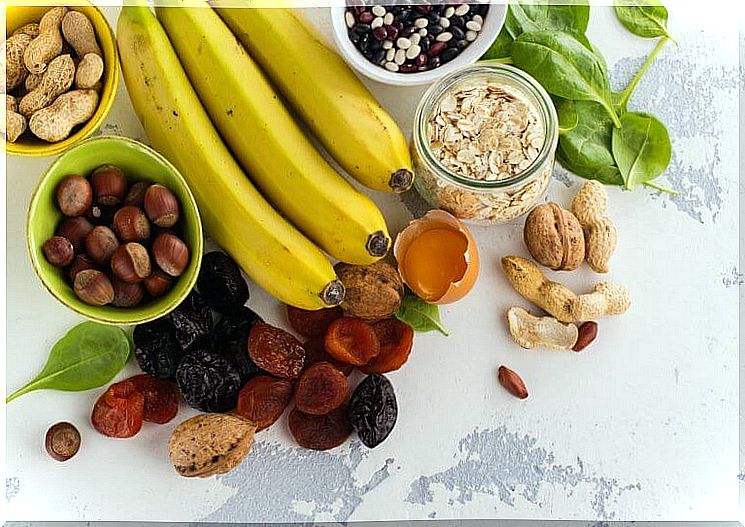
When you are told that you need to consume more potassium, you probably automatically think of bananas. But there are other foods that also contain this nutrient.
So you do not get tired of always eating the same thing over and over again to get the optimal intake of potassium that is important for many of the body’s functions. Learn more in the following article.
What is potassium and what does it do?
If you eat a lot of salt or you do not drink enough water during the day, it is important that you eat foods that contain this nutrient.
A severe potassium deficiency can cause significant health problems such as nervous system damage, kidney damage or heart complications.
Thanks to this mineral, the cells are well hydrated, healthy and nourished because it also helps in eliminating toxins.
Athletes’ favorite mineral

Potassium is extremely important when it comes to exercising and exercising. Therefore, it is normal to see athletes (like tennis players) eating a banana in the middle of a match or before or after a competition.
Potassium provides energy and restores fluids and electrolytes that are lost when we sweat. It also helps with the transmission of nerve impulses and is necessary for muscle contraction and recreation after exercise.
As if that were not enough, this nutrient is recommended for people with heart problems or hypertension as it regulates heart rhythm and pressure in the arteries while preventing arrhythmia.
Another benefit of a diet rich in potassium and low in sodium is that it protects the health of your kidneys by improving blood circulation and providing better filtration of the blood. In addition, it also prevents the formation of kidney stones.
Of course, there are several other benefits of potassium:
It is also known to be an excellent antioxidant that binds to free radicals and renders them inactive.
In addition, it helps prevent bone demineralization and osteoporosis by counteracting calcium loss through urination.
Finally , potassium also helps to produce gastric juice. These take part in certain digestive processes such as insulin secretion and balancing of body fluids.
Which foods give you more potassium?
The daily potassium intake should be between 3000 and 4000 mg in adults.
It is good to know that all foods in their natural state have more potassium than sodium. However, when they undergo certain treatments, this relationship changes.
Therefore, you should increase your intake of the first kind and decrease the second. How? Through a balanced diet with some of the following potassium-rich foods:
1. Leaf beds
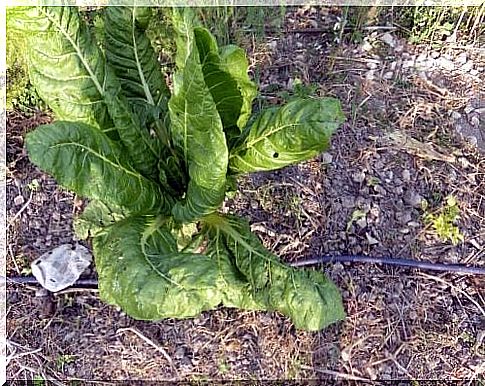
First of all, this delicious vegetable has many vitamins and can be eaten in many different ways for example in cakes, soups or sandwiches.
It is one of the most potassium rich vegetables. Each 100 gram (raw) leaf bed contains 380 mg more potassium.
Remember that a cup of leaf beds is only approx. 200 grams, it is not that difficult to add it to our daily diet.
2. Avocado
This fruit has a large amount of magnesium, fiber, vitamin E and potassium. In addition, it has a positive effect on the nervous system, heart and skin.
It is ideal for anxiety, depression and insomnia.
It also reduces anemia, relieves the symptoms of gastritis or stomach ulcers and reduces menstrual pain.
3. Cherimoya
This tropical fruit is considered to be one of the most complete fruits available. It has dozens of medicinal properties and every 100 grams gives you 382 mg more potassium.
It can be eaten as a dessert or used as for a sweet snack.
Cherimoya also contains proteins, calcium, iron, phosphorus and vitamins B1, B2 and B6.
4. Thyme
Many aromatic herbs are rich in potassium. For example, thyme, which is widely used in Mediterranean cuisine. In addition, it also contains essential thymol oil, flavonoids, amino acids, calcium, iron and vitamin C.
It cures infectious diseases of the respiratory system, is a very powerful natural antibiotic, boosts your immune system, counteracts indigestion and is anti-inflammatory (making it ideal for reducing menstrual pain).
5. Marietidsel
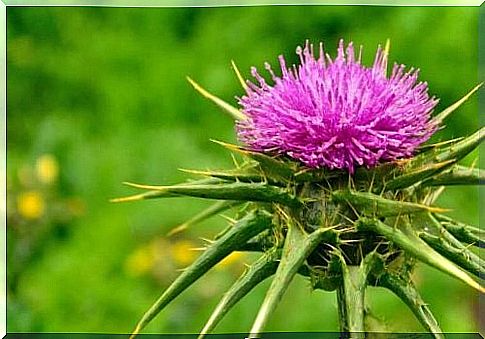
This plant, native to the Mediterranean and Central Europe, has been used as a medicine for centuries. The:
Treats chronic gallbladder and liver diseases.
Lowers blood sugar
Stops the formation of kidney stones
Reduces cholesterol
Is a strong vitamin complex that is especially recommended for women after childbirth.
With every 100 mg of Milk Thistle you get 400 mg more potassium.
6. Basil
This is one of the spices you may have in your kitchen to give your dishes both flavor and aroma.
Originally, basil is native to India (but known worldwide). Basil is rich in flavonoids, vitamins B1 and E, essential oils and minerals such as potassium.
Its properties make it:
Antispasmodic (it soothes stomach pain)
Stimulating (it helps with digestion)
Appetite stimulating ( it improves appetite)
Prevents nausea and vomiting
Anticoagulant Lowers
blood pressure
7. Potatoes
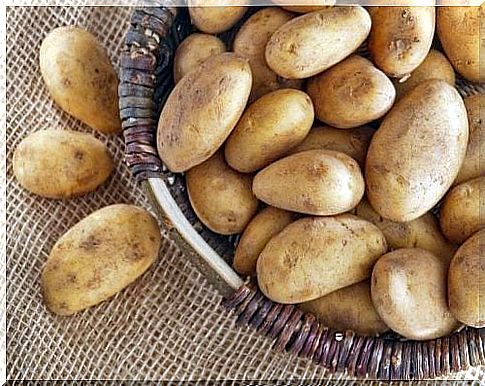
Finally, there are potatoes. A vegetable that can be eaten in a thousand different ways and forms part of both American and European diets. They also give us a large amount of potassium.
Each 100 grams contains at least 418 mg of potassium. We recommend that you enjoy them steamed, boiled or baked and not fried or salted.


